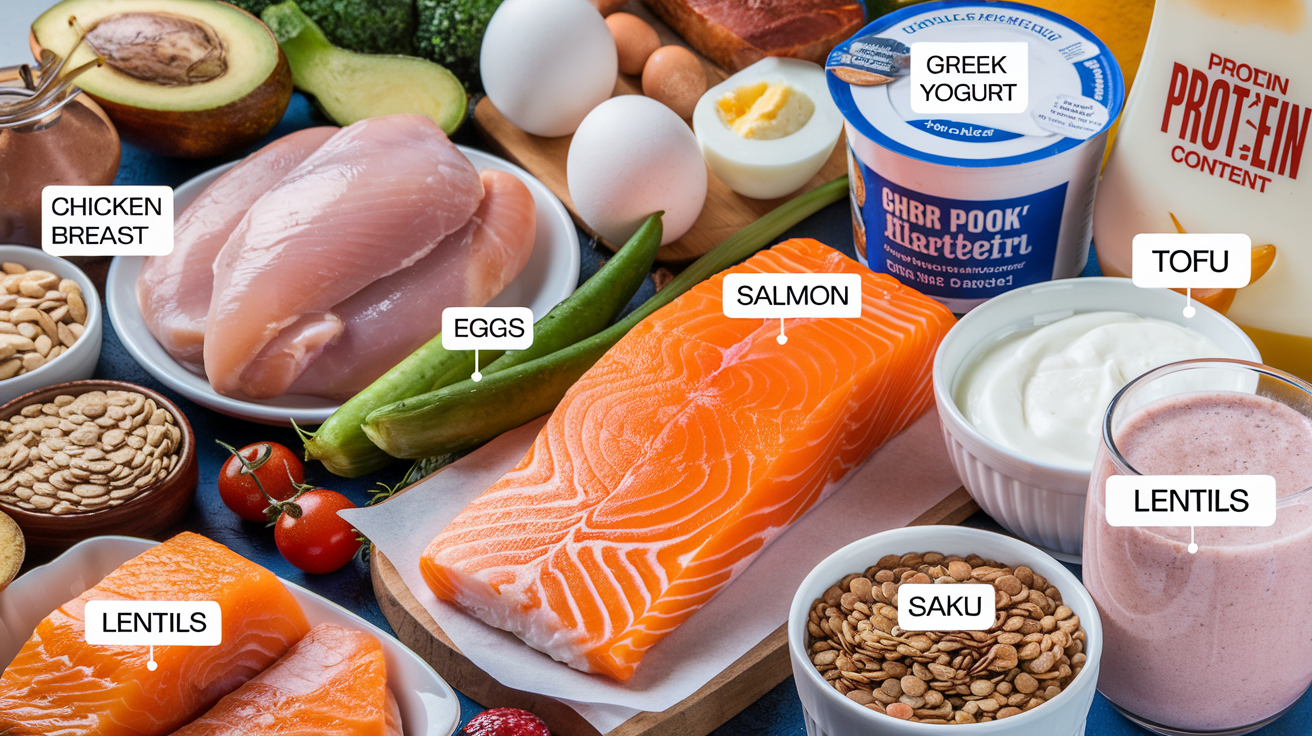
How Does Eating Protein Help You Build Muscle?
Does eating Protein Help You Build Muscle?
Eating protein helps you build muscle by providing the essential amino acids needed for muscle repair and growth. Protein supports muscle protein synthesis, a process that rebuilds and strengthens muscle fibers after exercise. Consuming enough protein daily—especially when combined with resistance training—promotes muscle recovery, enhances strength, and increases muscle mass. Aim for 1.2–2.2 grams of protein per kilogram of body weight to optimize muscle-building results.
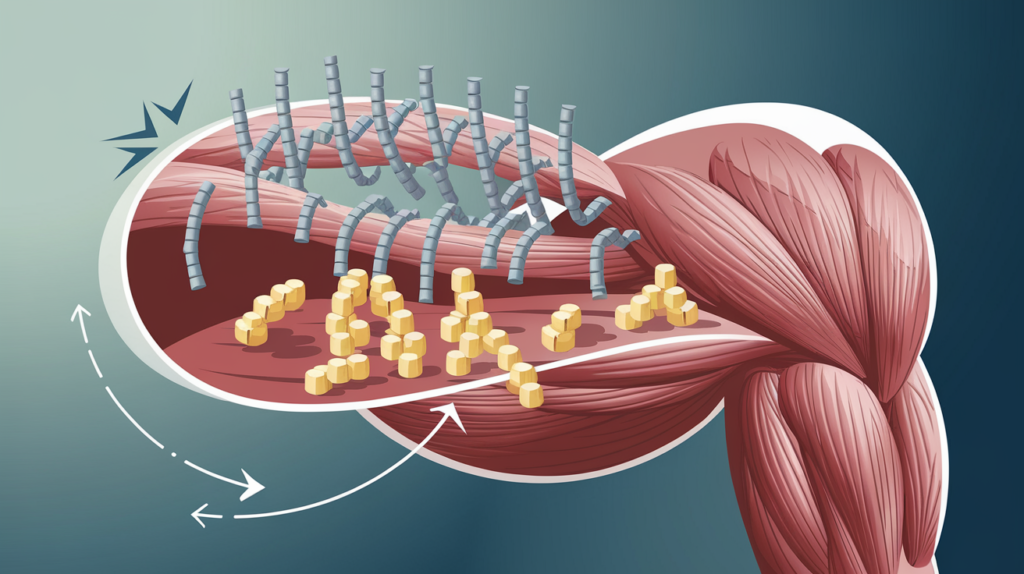
If you’ve ever been to a gym or scrolled through social media fitness influencers flexing their biceps while devouring a chicken breast, you’ve probably heard the mantra: “Protein is the key to building muscle!” But why? What’s the magic behind this macronutrient, and why does every gym bro treat a tub of protein powder like it’s holy water? Let’s dive into the delicious world of protein and muscles, with a sprinkle of humor to keep your brain gains as strong as your biceps.
What Is Protein Anyway?
Protein isn’t just the stuff of shakes and grilled chicken. It’s a macronutrient made up of amino acids—the building blocks of your muscles, skin, hair, and nails. Think of amino acids like Lego bricks. Your body uses these tiny bricks to build and repair tissues, including your precious muscles after a grueling workout.
There are 20 amino acids in total, but nine of them are considered essential—meaning your body can’t make them, and you have to get them from food. Cue the protein-packed feast!
How Protein Helps Build Muscle
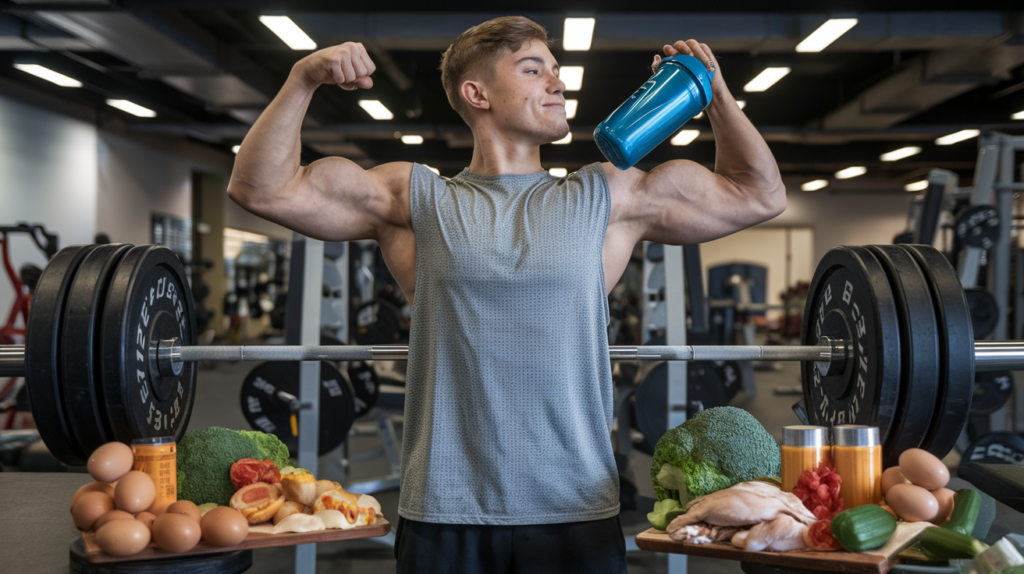
Let’s break it down without making your head spin like a treadmill on turbo mode:
1. Muscle Breakdown and Repair
When you lift weights, run, or do any intense physical activity, you create microscopic tears in your muscle fibers. (Yes, that soreness you feel is your muscles screaming, “What did you just do to me?”)
Protein comes to the rescue like a superhero in spandex. The amino acids in protein help repair and rebuild these muscle fibers, making them bigger, stronger, and ready to take on the next challenge. This process is called muscle protein synthesis, and it’s essentially your body saying, “Let’s bulk up!”
2. Positive Protein Balance
To build muscle, you need to be in a state of positive protein balance, which is just a fancy way of saying your body is creating more muscle protein than it’s breaking down. If you’re not eating enough protein, your body might start stealing from its own muscles to make up the deficit. (Cannibalizing your own gains? Not cool.)
3. Hormonal Boost
Protein also plays a role in releasing hormones like insulin and growth factors, which are essential for muscle growth. Think of it as the hype squad for your muscles, cheering them on as they grow.
How Much Protein Do You Really Need?
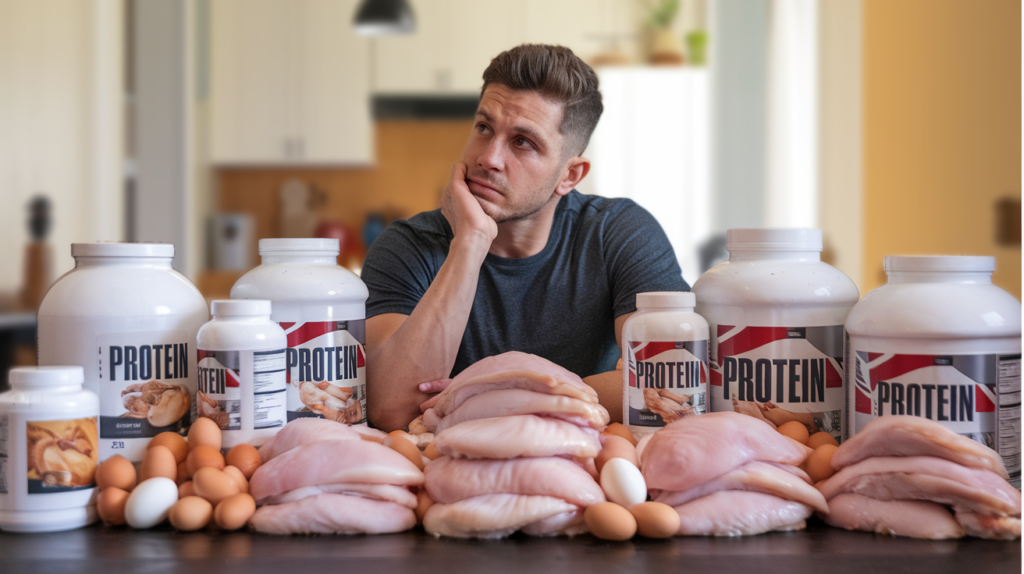
You don’t need to eat protein like it’s your job, but you do need enough to fuel your gains. According to most experts:
- Sedentary individuals: About 0.8 grams of protein per kilogram of body weight.
- Active people: 1.2–2.0 grams per kilogram of body weight.
- Bodybuilders and intense athletes: Up to 2.2 grams per kilogram of body weight.
For context, if you’re a 150-pound (68 kg) gym-goer, you’d aim for roughly 80–150 grams of protein per day, depending on your activity level and goals.
Pro tip: Your kidneys won’t explode if you eat a little more protein, despite what your Aunt Karen says.
How Much Protein Do You Need Per Day?
Ah, the million-dollar question! How much protein should you actually be eating? Well, it depends on your goals, activity level, and whether you’re trying to impress your gym buddies or just stay healthy.
Here’s a quick breakdown:
- Sedentary individuals (Netflix marathoners): Around 0.8 grams of protein per kilogram of body weight.
- Moderately active folks (gym enthusiasts or weekend warriors): Between 1.2 to 2.0 grams per kilogram of body weight.
- Hardcore athletes and bodybuilders (those who call the gym their second home): Up to 2.2 grams per kilogram of body weight.
For example, if you weigh 150 pounds (68 kilograms):
- A casual exerciser might aim for 81–136 grams of protein daily.
- A dedicated lifter might go up to 150 grams or more.
Spread this intake throughout the day to keep your body in a muscle-friendly state. And no, you don’t need to eat a steak every hour—unless that’s your thing, in which case, respect.
Best Sources of Protein For Muscle Growth
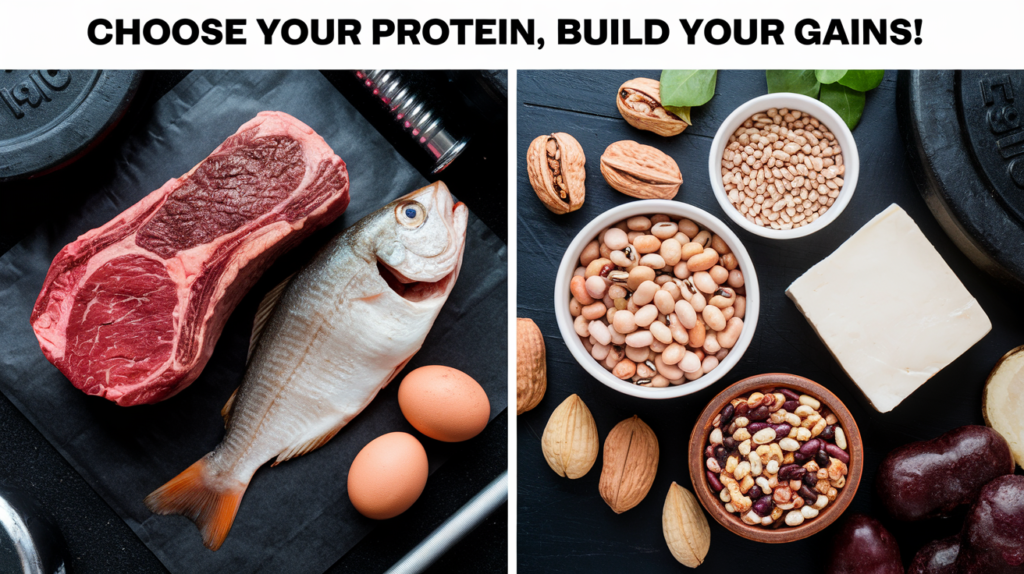
There’s more to life than dry chicken breasts and chalky protein shakes. Here are some of the best protein sources to keep your taste buds happy:
1. Animal-Based Proteins
- Dairy products like Greek yogurt, cottage cheese, and milk
- Chicken, turkey, beef (if you’re feeling fancy, go for steak)
- Eggs (yes, the yolk too—don’t be scared)
- Fish like salmon and tuna
2. Plant-Based Proteins
- Lentils, chickpeas, and black beans (hello, burrito bowls!)
- Tofu and tempeh (for the soy lovers out there)
- Nuts and seeds (almonds, peanuts, chia seeds—snack time, anyone?)
- Quinoa (technically a seed, but a solid protein source)
3. Protein Powders
Sometimes, you’re on the go, and blending up a shake is easier than grilling a steak. Whey, casein, and plant-based powders (pea or rice protein) are all great options. Just don’t become the guy at the gym who carries his shaker everywhere like it’s an emotional support water bottle.
Protein Timing: Does It Really Matter?
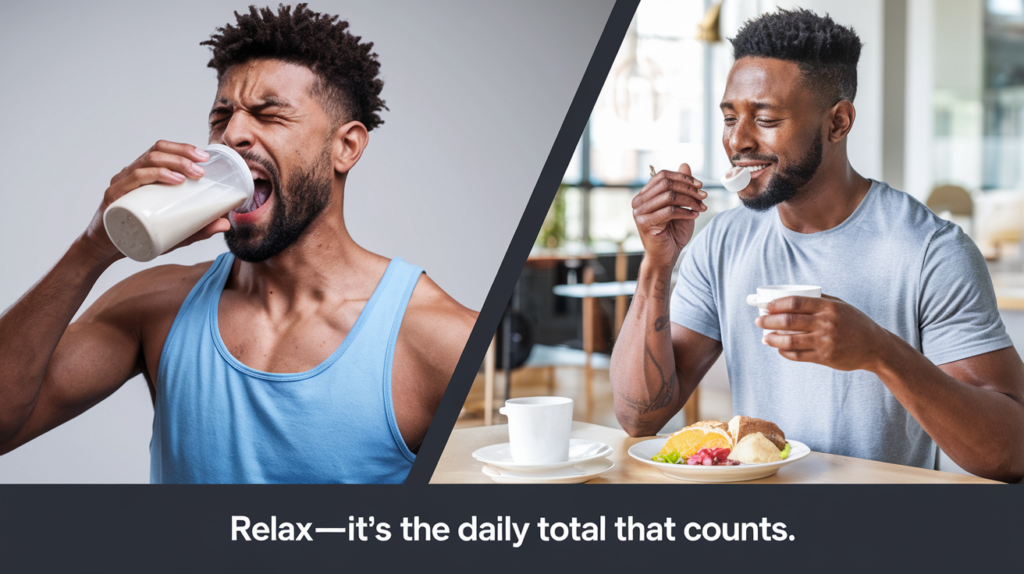
Ah, the infamous “anabolic window.” Some people will tell you that if you don’t chug a protein shake within 30 minutes of your workout, your gains will vanish into thin air. Truth bomb: That’s a myth.
What matters more is your total daily protein intake. Sure, eating protein after a workout can help kickstart muscle repair, but your body is more interested in the bigger picture. Spread your protein intake throughout the day for maximum muscle-building magic.
Can You Eat Too Much Protein?
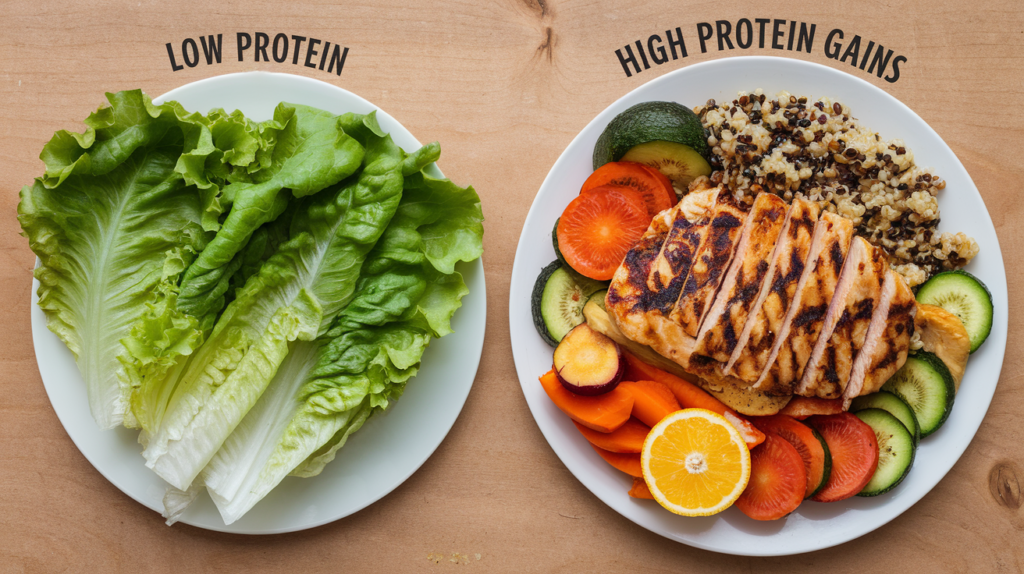
While protein is great, you don’t need to turn every meal into a meat feast. Excess protein won’t magically transform into more muscle—it’ll just be used as energy or stored as fat. Plus, eating too much protein might leave you with less room for other important nutrients like carbs and fats (yes, those matter too).
Also, nobody wants to be the person who clears the room with post-chicken fart clouds. Moderation is key, folks.
What Happens If You Don’t Get Enough Protein?
Skipping out on protein is like trying to build a house without bricks—it’s just not gonna work. Without enough protein:
- Your muscles won’t grow, no matter how many bicep curls you crank out.
- You might feel fatigued and recover slower from workouts.
- Your body might start breaking down existing muscle for energy (ouch).
Protein + Exercise = A Match Made in Muscle Heaven
Let’s not forget the obvious: Protein alone won’t build muscle. You also need to exercise, preferably with some form of resistance training. Think of it like this: Protein is the bricks, and your workouts are the construction crew. You need both to build that dream house (aka your dream bod).
Final Thoughts: Protein Is Your Gym Buddy
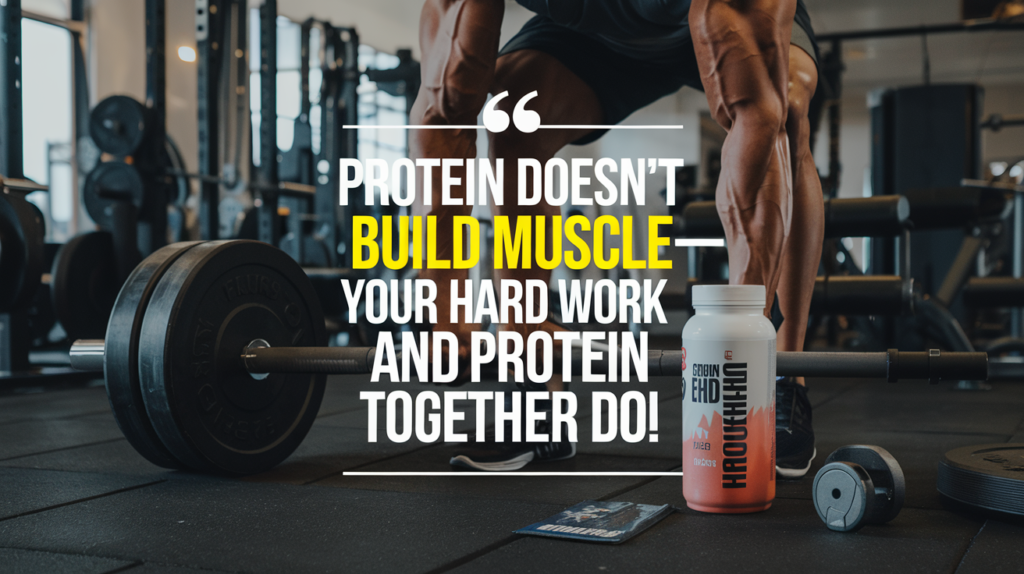
Eating protein isn’t just about gains—it’s about giving your body the tools it needs to repair, grow, and thrive. Whether you’re a gym newbie or a seasoned lifter, prioritizing protein can make a huge difference in your fitness journey.
So the next time you’re debating between a grilled chicken salad and a sad bowl of lettuce, remember this: Protein is the MVP of muscle building. Eat it, enjoy it, and let those gains roll in!
Now, go grab a protein-packed snack and get lifting—your muscles are counting on you.

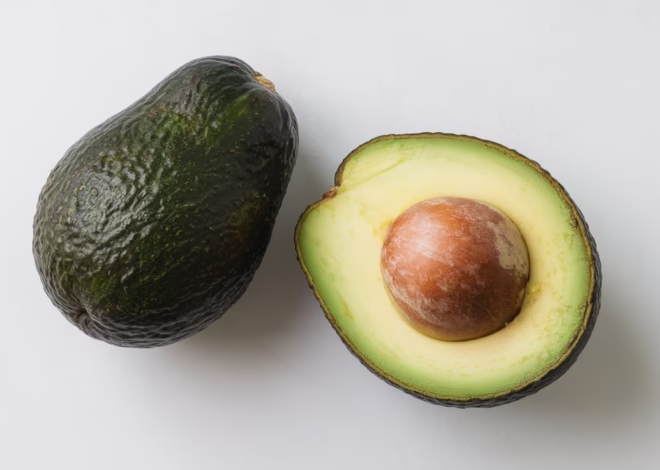
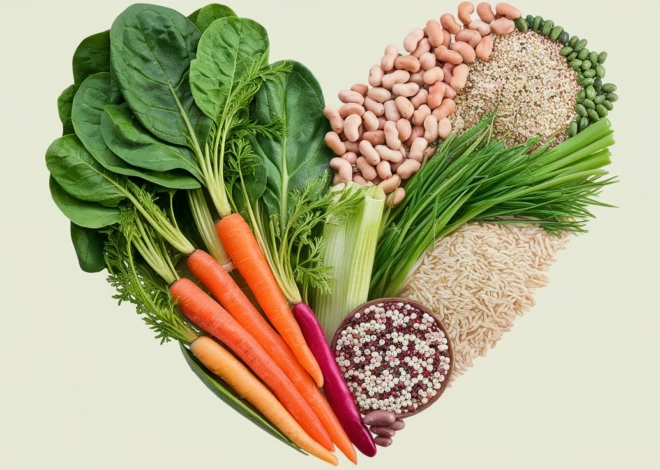

Can you write more about it? Your articles are always helpful to me. Thank you!
Aw, this was a very nice post. In concept I want to put in writing like this moreover ?taking time and actual effort to make an excellent article?however what can I say?I procrastinate alot and under no circumstances appear to get something done.
Write more, thats all I have to say. Literally, it seems as though you relied on the video to make your point. You definitely know what youre talking about, why throw away your intelligence on just posting videos to your site when you could be giving us something enlightening to read?
Heya i am for the first time here. I found this board and I find It truly useful & it helped me out a lot. I hope to present something back and aid others like you helped me.